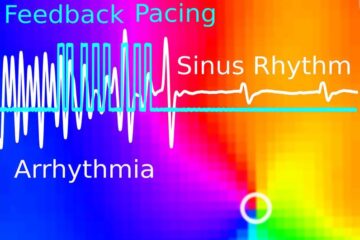Maedi-Visna, Aids of sheep

The disorder Maedi-Visna that is detected in sheep affects on mammary gland. As it says in the source language, Icelander, it affects lungs and nervous system. The disorder is produced by the lentivirus Maedi-Visna, which belongs to the family of Aids. This virus infects sheep, and until now, there is no evidence of the transmission to humans. This virus, which is known since many years, causes a very slow evolution of the disorder. Therefore, shepherds often do not detect the infection, because sheep die before the disease develops.
In the consensus conference held last September, experts on immunology, diagnosis, prevision and epidemiology of Maedi-Visna disorder participated. Among them we would like to mention the participation as an expert of Beatriz Amorena from the Public University of Navarre, Basque Country. All of them gave the reasons for the need to set a control programme for this disorder. Evidences produced by this disorder were also presented: financial consequences derived from a lower production of cattle caused by the lentivirus and the need to reinforce the health of cattle.
In the meeting representatives of 18 countries participated. In fact, it has been the first strategic action of consensus in the European Union about animal disease and in which the criteria “medicine based on evidence” has been applied. However, these kinds of actions are common in case of human diseases.
Researches to develop a vaccine in Pamplona
The Institute of Agrobiotechnology and Natural Resources of Navarre is actually working on three research projects about Maedi-Visna: two European projects and a national one. Those projects are carrying out under the supervision of Beatriz Amorena.
One of the European projects is the “Evaluation of Strategies on DNA Vaccine against the virus in sheep”. The aim of that research is to analyse the behaviour of the immune system against the virus, which vaccine strategies improve the immune response and which responses may be related to the protection against Maedi-Visna. In the project that will be carried out in three years, also participate researchers and organisations of other countries: such as France, Iceland, Italy and United Kingdom.
The second European project is on the “Improvement of tools to control lentivirus in sheep and goats”. This research is under development collaboration with 15 companies, one of them is the Basque Institute of Lactology Lekunberri, and 7 research centres of Europe. The aim of this project is to develop a method capable to detect the virus by using molecular diagnosis. The project is expected to finish next year.
Finally, at national level, the aim of the Institute of Agrobiotechnology and Natural Resources is to improve the control tools of the virus and properly understand mechanisms of the pathogenic nature of the virus. For that aim, DNA vaccines and molecular diagnosis will be used.
In the development of this project, apart from the Institute of Lactology of Lekunberri, various cattle farmers, the Centre of Insemination of Oscoz, ITG cattle raising company and the association of sheep of Latxa Navarra, Navarre Race and Aragon Race participate.
Media Contact
More Information:
http://www.basqueresearch.comAll latest news from the category: Life Sciences and Chemistry
Articles and reports from the Life Sciences and chemistry area deal with applied and basic research into modern biology, chemistry and human medicine.
Valuable information can be found on a range of life sciences fields including bacteriology, biochemistry, bionics, bioinformatics, biophysics, biotechnology, genetics, geobotany, human biology, marine biology, microbiology, molecular biology, cellular biology, zoology, bioinorganic chemistry, microchemistry and environmental chemistry.
Newest articles

Wildfire danger to increase due to climate change
WSL Institute for Snow and Avalanche Research (SLF) researchers expect an elevated wildfire danger in the Alpine Foreland from 2040 onwards due to changing meteorological conditions. The danger currently remains…

Advanced Brain Science Without Coding Expertise
Researchers at Helmholtz Munich and the LMU University Hospital Munich introduce DELiVR, offering a new AI-based approach to the complex task of brain cell mapping. The deep learning tool democratizes…

Gentle defibrillation for the heart
Using light pulses as a model for electrical defibrillation, Göttingen scientists developed a method to assess and modulate the heart function. The research team from the Max Planck Institute for…





















